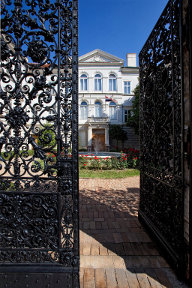CROATIA FROM YUGOSLAVIA TO EUROPEAN UNION (1980-2013)
Abstract
Breakup of Yugoslavia and establishment of new geopolitical architecture in the “region” – including Croatian independence – presents one of the most intriguing and complex subjects in the recent Croatian, (post)Yugoslav and European history of the 20th century. The chronological frame of the research starts with the death of Josip Broz Tito in 1980, and ends with Croatia’s accession to EU in 2013.
Main objective of the project is to research social, political, military and other circumstances in Yugoslavia, Croatia, Bosnia and Herzegovina at the end of the 20th and beginning of the 21st century. This will cover relatively short time span of 30 years, with special focus on the period between 1980 and 1995. Geographically speaking, the project will cover complete Croatian ethnical territory, with specific reseraches limited only to the history of region and military questions such as army structure and relevant battles. Special attention will be paid to ideologies, political parties, military formation and demographic indicators. Researchers will employ history research methods, in particular analysis of primary sources, but secondary sources such as media and individual memories will be included as well. Results from other humanist and social disciplines will be incorporated into the research.
Elaboration of the general project objective
The project explores “the latest” – partially “present” history (T.G. Ash); events and social processes that marked the recent past of Croatia and (post)Yugoslav lands: collapse and the breakup of the Yugoslav state and the geopolitical developments that followed: defeat of communist one-party system and affirmation of political pluralism, war(s) in Slovenia, Croatia, Bosnia and Herzegovina, Kosovo and Serbia that resulted in traumatic experiences of the widest population (forces migrations, war crimes…), problem of overcoming controversial ideological heritage, building of democratic institutions and development of civil society, various social transition aspects, international affirmation of Croatia and its integration into international associations and Euro-Atlantic integration, and many other factors that shaped the period.
The circumstances in (former) Yugoslavia were partly affected by the turbulent events that took place on the international stage – breakup of the Soviet Union and collapse of communism, search for alternatives to bipolarization, European integration and the rise of globalization. Considering the war conflict and humanitarian disaster that emerged after the breakup of Yugoslavia, many world powers and relevant organizations took part in efforts to end conflicts and find political solutions. Given the exceptional interest of both domestic and international public, the science discourse that followed and interpreted specific aspects of “Yugoslav crisis” developed already in the early 1990s. In that sense we can talk about the beginning of initial historiographic research, or more precisely about attempts to reconstruct, contextualize and interpret the specified events and social processes of the recent history, despite the minimum time distance and its side-effects. Croatian historiography, namely the Croatian Institute of history, also began addressing those topics in the early 2000s. During the last decade, Croatian Institute of History has become one of leaders in Croatia and region, with a series of significant achievements.
Despite various problems and oscillations that followed the beginnings of that research (inability to access sources, public pressure, intertwining of daily political, media and science discourse, and many different starting points and interpretations of controversial topics…), the research work of the Croatian Institute of History up to date has generated discernible outcomes; equally in the construction of memorial culture and in the development of critical discourse necessary for overcoming of traumatic past experiences and building of plural democratic society. The research results have been continuously present in the public life, education publications, media, public lectures and science conferences. Considering many uncovered topics and the actuality of the subject matter, planned research should build on the achieved results and continue work through establishment of regional and international cooperation. Recent availability of approximately seven million ICTY document provides excellent platform for cooperation establishment.

